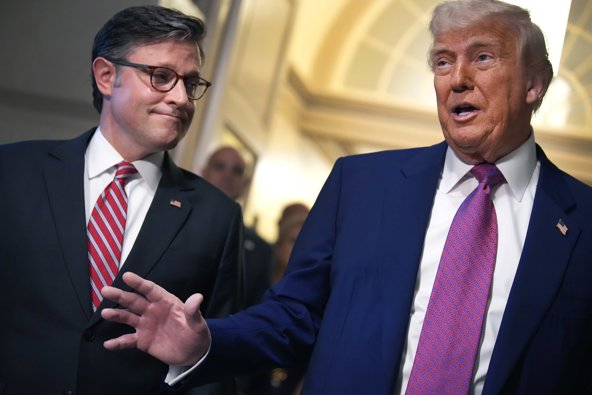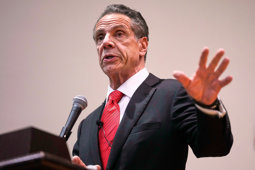
Trump Pushes Senate for Swift Passage of Signature Bill
Trump urges Senate Republicans to pass his sweeping legislative package by July 4 amid internal divisions and high stakes.
Senate GOP Grapples With Final Hurdles on Trump’s Legislative Agenda
President Donald Trump is applying intense pressure on Senate Republicans to pass his “big, beautiful bill” before the self-imposed July 4 deadline. The legislation, a massive policy package spanning tax reform, immigration, energy, defense, and fiscal policy, represents a cornerstone of Trump’s second-term agenda. Having cleared the House by just one vote in May, the measure now faces a complex path in the Senate, where divisions among Republicans threaten to derail its progress.
Senate Budget Committee Chair Lindsey Graham unveiled the final text of the bill late Friday, the result of weeks of negotiation and consolidation of input from ten Senate committees. Lawmakers are eyeing a Saturday vote to begin the formal process, though the timeline remains uncertain due to ongoing disputes over several contentious provisions. Among these are reforms to Medicaid, adjustments to the state and local tax (SALT) deduction cap, and measures to stabilize rural hospitals.
“President Trump is the leader of the Republican Party, isn’t he?” remarked Rep. Derrick Van Orden of Wisconsin, stressing that Trump’s direct involvement was pivotal to securing passage in the House. The president has maintained constant communication with congressional leaders and administration officials, including Treasury Secretary Scott Bessent, White House Chief of Staff Susie Wiles, and Vice President JD Vance, all working to rally Senate support.
White House Warns of Tax Hikes and Recession If Bill Fails
Vice President JD Vance may be called upon to cast a tiebreaking vote in the Senate if support for the bill falls short of a majority. With 53 Republicans in the chamber, the margin for dissent is slim. Vance, who has previously broken Senate deadlocks, has voiced optimism about the bill’s prospects, despite opposition from several GOP senators over Medicaid reforms and their impact on rural healthcare.
Senators Susan Collins, Josh Hawley, and Lisa Murkowski have cited concerns about the bill’s effects on their states’ hospitals, while the Senate parliamentarian recently forced the removal of several Medicaid provisions that did not comply with reconciliation rules. To address these issues, the latest version of the bill includes a $25 billion stabilization fund for rural hospitals and a revised plan for SALT deductions, keeping a $40,000 cap before reverting to $10,000 after five years.
White House budget chief Russell Vought warned lawmakers that failure to pass the measure would result in a 60% tax increase for Americans and could trigger a recession. Party strategists argue the bill is essential to sustaining the 2017 tax cuts and supporting economic growth heading into the midterms. “Senate Republicans don’t want to be responsible for the massive tax increase on the middle class,” said GOP strategist Matt Wolking, adding that Trump’s leadership and Vance’s potential tie-breaking vote remain key assets.
Contentious Debate and Final Push to the Finish Line
The bill’s fate now rests on the ability of Republican leaders to unite their caucus and overcome last-minute objections. The procedural vote requires a simple majority, after which a 20-hour debate and a “vote-a-rama” on amendments will follow. Democrats are expected to use their time to propose messaging amendments, potentially prolonging the process, while Republican leaders hope to avoid further delays and solidify the legislative victory.
Senate Majority Leader John Thune is pushing for a swift vote, urging colleagues to move past prolonged debate. “We have cussed and discussed this bill for a long, long time, and at some point you move from careful, rational deliberation into the foothills of jackassery,” said Sen. John Kennedy of Louisiana, underscoring the growing impatience among lawmakers. If passed, the bill will return to the House for final approval before heading to Trump’s desk, potentially marking a major legislative win for the administration on the eve of Independence Day.






